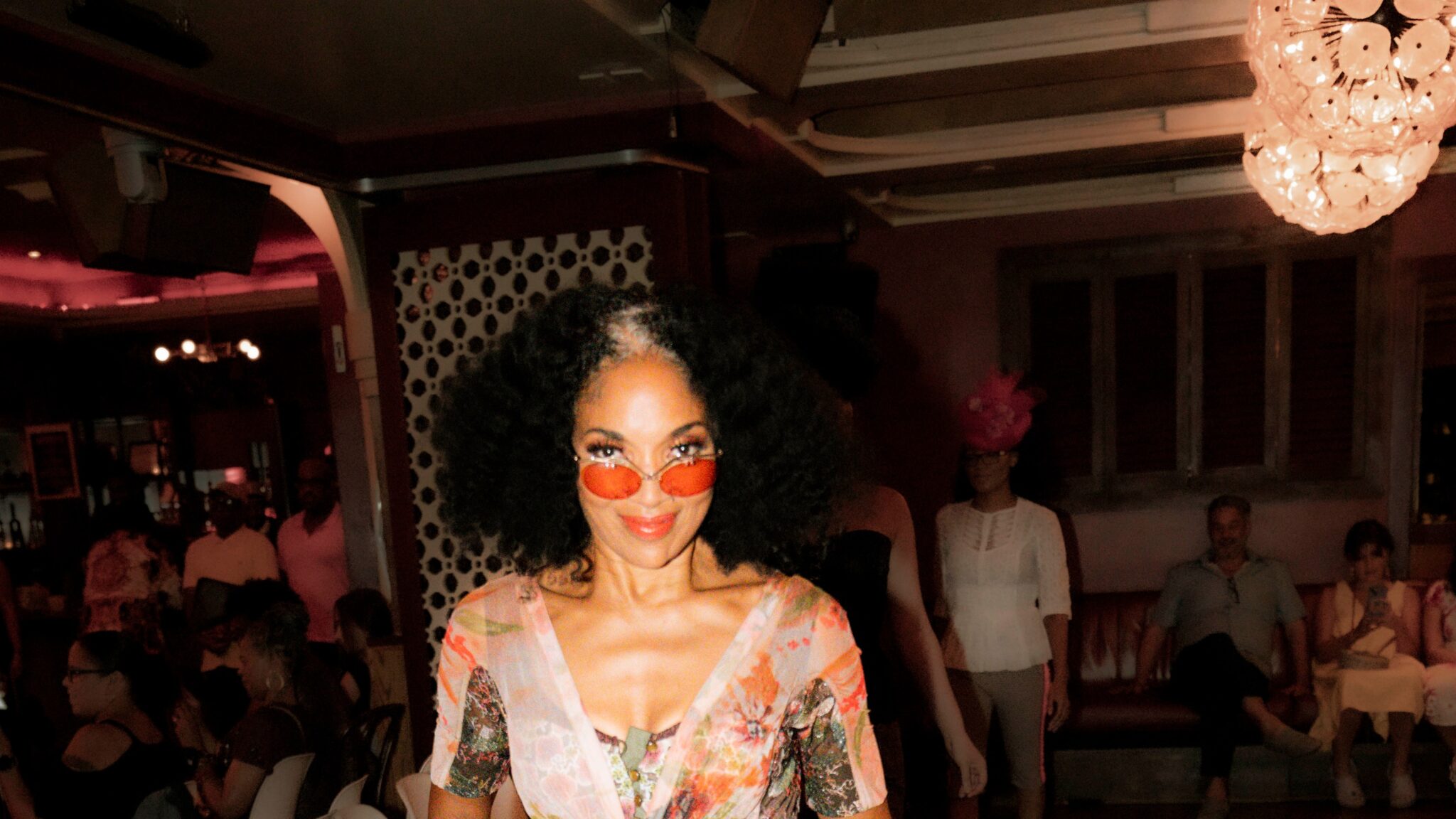Collectability was the organizing principle of Byron Lars’ spring show, presented at Ginny’s Supper Club at the Red Rooster in Harlem. It was the Barbie trend, Lars explained, that started this line of thinking. There are few people in New York better qualified than Lars to speak on the subject of Miss Plastic Fantastic: Mattel asked Lars to create one black collectible Barbie in 1996; The project was so successful that he created one every year until 2011. “I understood that many black women longed for representation in the doll world,” Lars said, explaining that each of his fifteen Barbies (one of which was carried down a model’s runway) had “a different skin tone, hair texture and of course, an outfit that reflected a spectrum of black fashion sensibilities.”
If there was any carryover from Lars’ collaboration with Mattel to his latest In Earnest collection, it had to do with the idea of getting dolled up; almost everything that went down the runway had a bead or glitter of some kind. Multiplicity was the message, and this was often achieved through layering. After looking back on his Barbies, Lars noted that “there were so many mundane things mixed with aspirational aspects; beads and utilitarianism and all that stuff put together. There’s a lot of Barbie-esque stuff here, but it’s not a Barbie collection. It was indeed very similar to his previous offerings.
If there was little forward movement here, there was a sense of community. Some of Lars’ designs have been styled by his longtime business partner, Sheila Gray, with illustrated and hand-appliqued T-shirts, which she said appeal to one’s “inner doll.” Hats by Lisa McFadden Millinery added an extra layer to the story. “The coexistence of ‘Sunday Best’ with everyday clothing was very conscious, as I have a soft spot for a good church hat in general, but never more so than when one is rocked with pedestrian staples such as a T-shirt. shirt or cargo pants,” says Lars.





